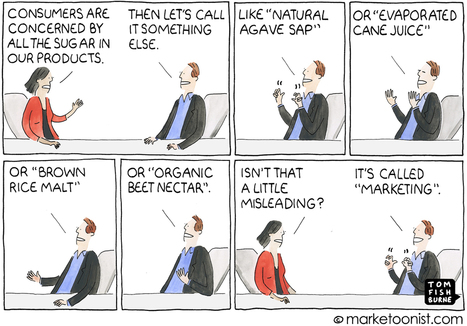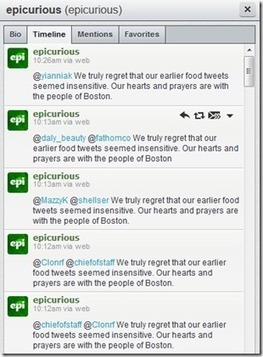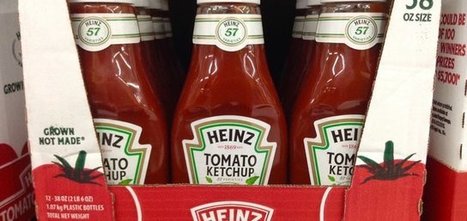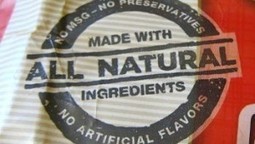It’s a tricky time to be a food marketer. Consumers are scrutinizing more than ever to what goes into the foods they buy. And what constitutes “healthy” to consumers is in flux.
The FDA recently announced that it will be calling out “added sugar” on nutrition labels in the future. It is estimated that 68% of processed foods contain added sugars.
“It’s going to really surprise people who go to organic and whole foods stores, when they find that all this natural food they’ve been buying is full of added sugar,” said Barry Popkin, UNC professor and author of a study called, “Sweetening of the Global Diet.
”I heard that there are 61 different names for added sugar listed on food labels, which can make it hard for consumers to evaluate the amount of sugar in products they buy. The sneakiest trick to to have multiple sources of added sugar in one product, so that no one type of sugar shows up first on the ingredients panel....



 Your new post is loading...
Your new post is loading...













Is it "Health-washing" or is it marketing? Mostly, it's deceptive and dishonest.